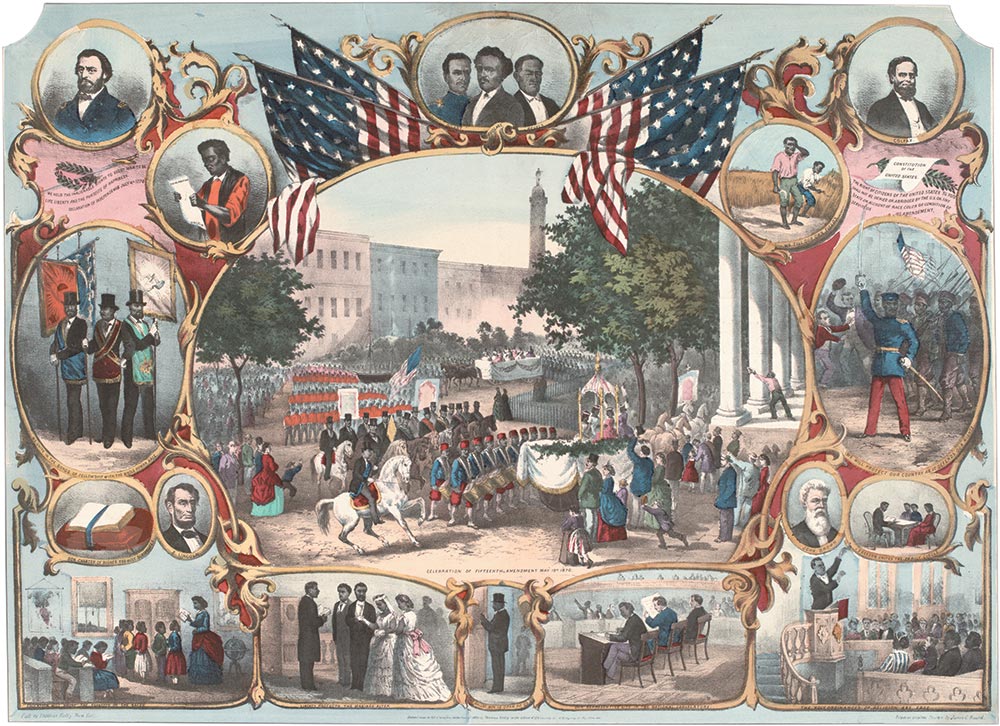The Fifteenth Amendment, 1870
A Spotlight on a Primary Source by William Henry Seward
![William Henry Seward, [Fifteenth Amendment resolution], February 27, 1869 (Gilder Lehrman Collection) William Henry Seward, [Fifteenth Amendment resolution], February 27, 1869 (Gilde](/sites/default/files/content-images/00788.01_p1.jpg) The Thirteenth, Fourteenth, and Fifteenth Amendments gave constitutional status to emancipation’s promise. The Fifteenth Amendment provided suffrage for black men, declaring that “the right of citizens of the United States to vote shall not be denied or abridged by the United States or by any State on account of race, color, or previous condition of servitude.”
The Thirteenth, Fourteenth, and Fifteenth Amendments gave constitutional status to emancipation’s promise. The Fifteenth Amendment provided suffrage for black men, declaring that “the right of citizens of the United States to vote shall not be denied or abridged by the United States or by any State on account of race, color, or previous condition of servitude.”
Although ratified in 1870, the promise of the Fifteenth Amendment was not fully realized in our country until almost a century later. African Americans were deterred from exercising their right to vote through measures such as poll taxes and literacy tests. It was not until the Voting Rights Act of 1965 that the majority of African Americans in the South were finally able to vote.

In this lithograph, “The Fifteenth Amendment Celebrated May 19th 1870,” the legislation takes symbolic form. The artist depicts African Americans’ hopes arising from the passage of the Fifteenth Amendment: scenes of education, family life, jobs, and the vote. Among the collage of images are portraits of abolitionist heroes Frederick Douglass, John Brown, and Abraham Lincoln.
